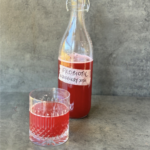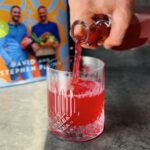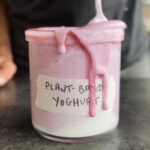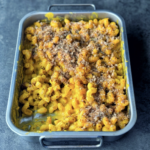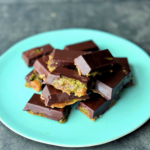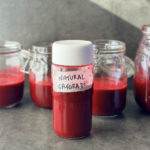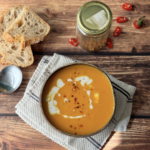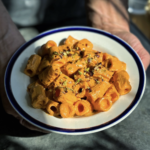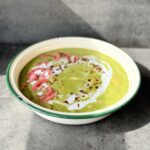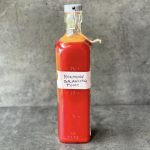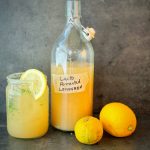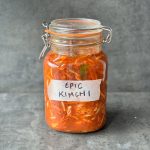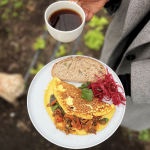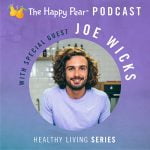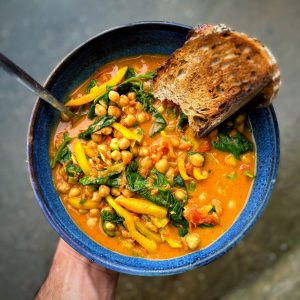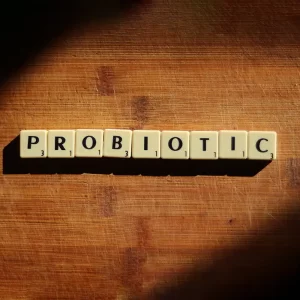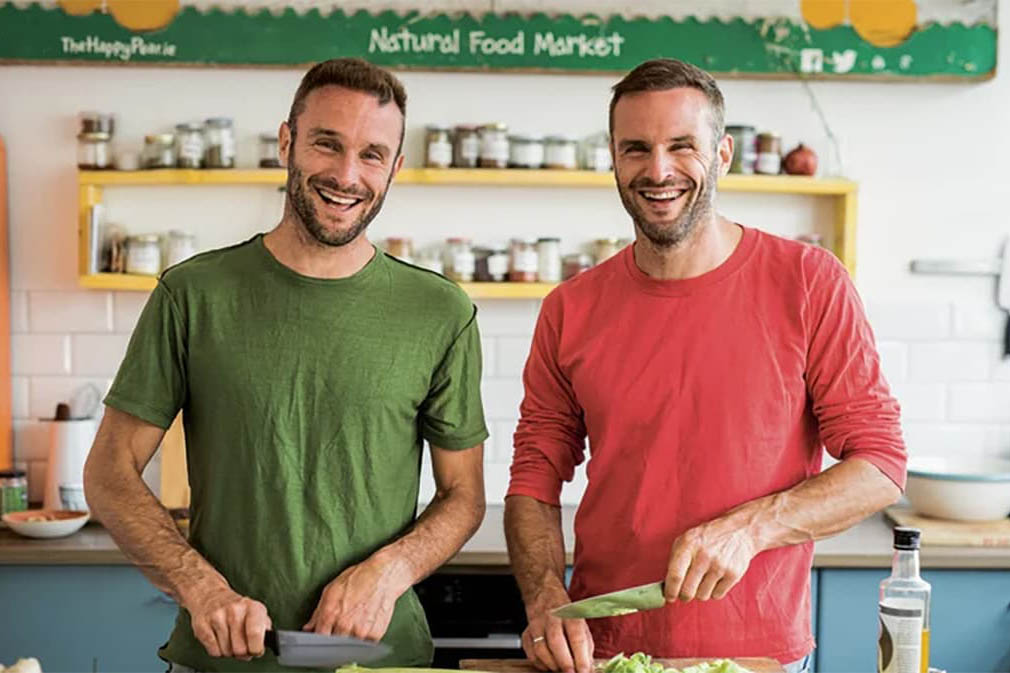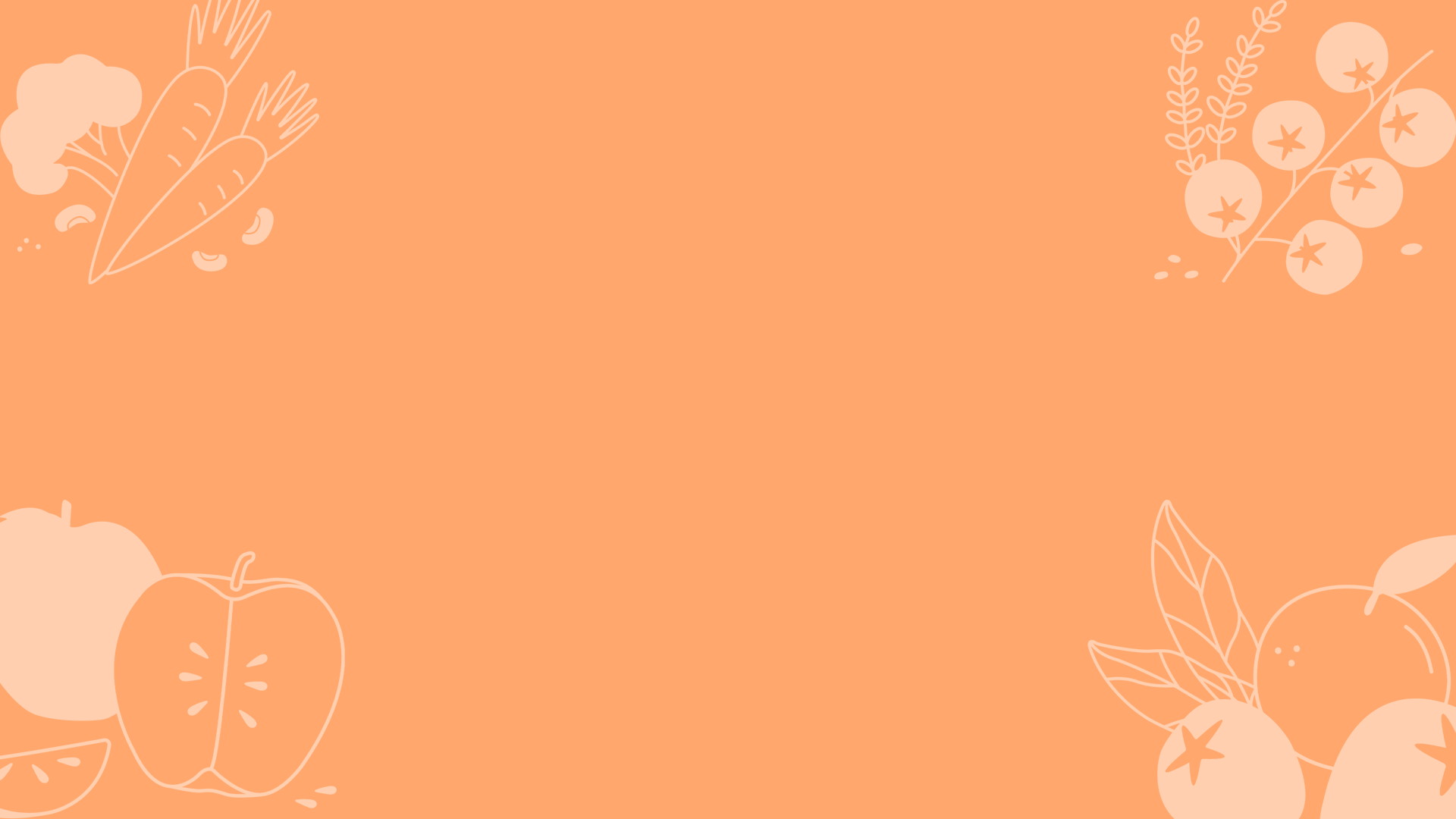
How To Improve Gut Health
How do you improve gut health, what is gut health and why is it so important? This is an in depth article where we deep dive into all things gut health, microbiome, bloating and FODMAP’s. The gut is literally central to so many aspects of our health yet many of us know little about it or how to care for it. Here we try to change this. Enjoy!
What is your gut, why is it so important? How to improve your health
Your gut is home to hundreds of trillions of microorganisms, bacteria, funghi, yeast, archaea. This collection of microorganisms are also known as your microbiome [1]. Your microbiome exists In your large intestine, your bowel where you have approximately 2kg of microorganisms. Your microbiome works symbiotically with every system in your body. The health of it directly impacts every aspect of your health. Hippocrates, the father of modern medicine, back more than 2000 years ago said that ‘all disease starts in the gut’. Your gut and your microbiome are believed to be the centre of human biology.
Your microbiome can consist of ‘healthy’ strains of microorganisms and unhealthy strains. Many lifestyle factors such as the foods you eat [2], your stress levels, your level of physical activity and the quality of your sleep [3] greatly impact your gut health and your microbiome.
Foods to avoid for gut health. What are the worst food for gut health?
- Refined and processed foods have a negative impact on gut health [4]. Unfortunately the modern industrialised diet consisting of more than 50% of its calories from ultra processed foods that are high in fat, salt and sugar encourages the unhealthy strains of bacteria in our gut and can cause an overgrowth of the bad bacteria [5]. Today nearly 75% of the worlds foods supply comes from 12 plants and 5 animals which is the opposite of a diverse diet. [6]
- Refined foods contain no prebiotic fibre in them [7]. Many whole plant foods such as beans, lentils, legumes, many fruit, veg and whole grains are high in prebiotic fibre which is an insoluble fibre that encourages the healthy strains of bacteria
- Alcohol consumption can negatively affect your gut health by encouraging dysbiosis or an imbalance of the strains of bacteria in your gut. Alcohol is a fermented food that is high in simple sugars so has no prebiotic fibres in it [8].
- Excessive antibiotic use. Antibiotics are amazing, they save peoples lives everyday of the week. However excessive use of them can wreak havoc on your gut microbiome and cause an imbalance [9].
- Cigarette smoking – Smoking has a negative effect on your gut microbiome [10] and nearly every system in your body which is not surprising in that there are thousands of different chemicals in a cigarette. Studies have shown that smoking cessation is associated with increased gut diversity and a healthier microbiome.
- Coffee. Lots of people wonder can coffee cause bloating? Does it make you gassy. Coffee is a natural laxative that stimulates the muscles in your digestive system, which can lead to an increase in bowel movements. It is very much case specific as to whether it affects your gut. T
Lifestyle factors to improve your gut health
- Physical activity – recent research has shown that those who exercise and move their body more often tend to have healthier microbiomes and stronger immune systems [18]. This does not mean that you need to join a gym or start running marathons, it just means that getting your 10k daily steps can improve your gut health as well as so many other systems in your body. Higher fitness levels have been associated to more production of healthy short chain fatty acids in your gut which are linked to overall health [19].
- Good sleep [20]. Just like every other system in your body, your gut tends to follow your bodies natural circadian rhythm (your internal 24 hour clock) and appears to function much better after good sleep. Studies have shown that those that have good sleep habits tend to have healthier guts. Shift workers and people with inconsistent sleep schedules have been associated to having less healthy gut microbiomes.
- Spending time in nature. Spending time in nature usually means your body absorbs more vitamin D, helps boost our immune system in which the majority of this is in your gut [21]. Spending time outside exposes you to more micro organisms. The natural world is covered in bacteria and micro organisms. Generally speaking the more variety of bacteria in your gut the healthier it is. By spending time in nature you are exposing yourself to more bacterial biodiversity which in turn builds up your immune system, gut health and overall health.
- Stress reduction – 70% of all IBS is associated to stress. Stress can wreak havoc on your gut. Stress has been associated with increasing sensitivity, reducing blood flow and altering your gut flora. Stress has been associated with production of the ‘bad’ but bugs such as ‘clostridium’ and reducing beneficial bacteria [22].
- Cutting down on alcohol [23]. Alcohol is a fermented food that is high in sugars, generally speaking it has a harmful effect on your gut health. Excess alcohol consumption has been linked to an imbalance in your gut microbiome. By reducing your alcohol consumption your sleep is generally better quality, good sleep is linked to healthier guts also alcohol consumption is generally linked to the consumption of processed foods so reducing or cutting out alcohol can have a compounding positive effect on your gut.
- Not smoking. Smoking has a negative effect on nearly every system in your body which is not surprising in that there are thousands of different chemicals in a cigarette [25]. Smoking is one of the main contributing factors associated with IBD (inflammatory bowel disease) [26]. Studies have shown that smoking cessation is associated with increased gut diversity and a healthier microbiome

Gut Health Facts:
- Trillions of bacteria and microorganisms exist that make up your ‘microbiome’.
- These microorganisms in your gut are believed to be in the tens of trillions in terms of numbers (that is 10 with 14 zeros after it!!) existing mostly in your small intestine.
- Just to put this in context, as Neil deGrasse Tyson put it, “More bacteria live and work in one linear centimeter of your lower colon than all the humans who have ever lived!
- 70% of our immune system cells are based in your gut [27].
- 95% of your happy hormones (serotonin) is also made in your gut so the health of your microbiome is super important to your happiness.
- There is a very important nerve, called the vagus nerve, that transfers information directly from your gut to your brain meaning that the health of your gut is very likely to impact your moods, the foods you crave, your concentration and realistically your mental health.
- Many probably think that our stools are composed primarily of undigested food but most of it 75% is in fact pure bacteria.
- The richest microbiomes ever recorded were those of the Yanomami tribe in the Amazon Jungle who had no previous contact with the modern world. Traditional societies tend to have more diverse gut flora in general, and the key is thought to be their extraordinary fibre intakes, which can reach 120grams a day. Nearly eight times the UK and Irish average.
‘Having had more than 20,000 people through our Gut Health Revolution Course we have learnt that the single most important factor for influencing the health of your gut health is what you eat. ‘

Here’s Some Recipes You’ll Love
Here are some delicious recipes that are packed with prebiotic fibre so great for your gut. If you want to make them easier on your gut choose our low FODMAP recipes.
- Healthier Pumpkin Mac & Cheese – Lower Fat
- Triple Layer Chocolate Pistachio Bites
- Natural Gatorade
- Comforting Pumpkin Soup
- Probiotic Elderberry Soda (Refined Sugar-free)
- 8 Mins High Protein Red Pepper Pasta
- Super Greens Lentil Curry
- Probiotic Blackberry Soda (alcohol free)
- Strawberry Shortcake Overnight Oats
- Plant-based Yogurt
Fermented foods for gut health
Fermented foods encourage bacterial biodiversity in our guts [28]. Did you know that 70% of our immune system cells are based in our gut and that most of our gut consists of millions of different bacteria and mico organisms (appox 2kg in weight). Leading gut science believes that the diversity of the bacteria in your gut is directly linked to the strength of your immune system. Fermented foods feed your microbiome and therefore are super beneficial to eat on a regular or daily basis. How to improve gut health.
If you are wondering about probiotics and whether you should take them. Here is an article we wrote with Consultant Gastroenterologist Dr. Alan Desmond all about probiotics.
What are fermented foods
Fermented foods are often referred to as ‘the forgotten food group’ as they are much less a part of most people’s daily foods as they used to be. Traditionally foods were fermented as a means of preservation, to keep veg from the garden over the winter when there was much less fresh foods. Nowadays most of us don’t need to preserve food from our gardens but actively need to eat fermented foods for their beneficial probiotic properties. Chances are you probably eat some types of fermented foods such as chocolate, coffee, wine for eg. these all go through a fermentation process in their production. We wrote an article on probiotics in Ireland with a focus on foods if you want to learn more.
We usually have some form of sauerkraut or kimchi with our lunch or dinner most days, often eat coconut yoghurt with breakfast and having a sourdough bakery we eat sourdough bread most days. It is just getting in the habit of incorporating fermented foods into your daily eating habits.
The main fermentation include – yoghurt, sauerkraut & kim chi, sourdough bread, kombucha, and ginger bug.
Yoghurt
Originating from the Turkish word ‘to thicken’, yogurt is a food that has been eaten for centuries; with ancient Indian records describing yogurt as ‘the food of the gods’.
It is traditionally made by fermenting cows’ milk. These days, there are many different plant-based alternatives to dairy based yoghurts available, from soy to almond or coconut, which all taste great and still provide all the probiotic goodness.
Sauerkraut
Sauerkraut is perhaps one of the most well-known fermented dishes and has been a traditional staple in countries such as Germany, Poland, and Russia for many years. Made of finely cut/grated raw hard cabbage that is fermented with salt and spices. We love sauerkraut and find that it’s tangy flavour goes great with all savoury dishes. A personal favourite of ours is serving it on top of avocado on sourdough bread; it’s a match made in heaven!
While sauerkraut is more widely available in health food stores and restaurants, making your own could not be easier. Here is a video we shot of us showing you how to make saurkraut.
Kimchi
Kimchi is definitely one of our favourite condiments, we have it alongside a lot of our lunches and dinners. It is a traditional Korean fermented side dish, its spicy and savoury and oh so yummy!! It has that distinctive acidic note of fermented foods and as a result is packed with probiotics great for you digestion and immune system.
Traditional kimchi recipes use fish sauce which we have replaced with tamari and a little kelp powder if you have it.
Traditional kimchi uses Korean chilli powder known as gochugaru, which gives it its wonderful bright red colour and spice, it is made with a specific Japanese dried red chillies without the seeds so making it slightly less spicy & sweeter than more conventional chilli powders. You can get it at most Asian food shops and if not, simply replace with a mixture ground chilli powder and sweet paprika.
Here is an easy Kim chi video recipe we made to show you how to make it.
Kombucha
Kombucha is in a sense like a healthier lemonade that is really good for your gut, its a good one to give to your kids, our kids certainly love as do we! It is a naturally carbonated fermented drink that is usually infused with different flavours. It is a great alternative to fizzy drinks as it is naturally carbonated. It is easy to make and there is something beautiful about fermenting your own kombucha at home and growing a good kombucha mother culture (also known as a scoby – symbiotic culture of bacteria and yeast) which converts the sugar to probiotic bacteria).
Sugar is used to cause the fermentation process in which it is believed that 95%+ of the sugar is converted to beneficial bacteria. Most sugars work fine, we have found in our experience trying most types of sugar that a simple white granulated sugar works best.
You can buy SCOBY online or if you know someone that brew kombucha then they should have some spare SCOBY’s as they tend to multiply every couple of weeks. You can also leave a bottle of store bought kombucha open (but covered) and a scoby will grow on it in about 2-4 weeks.
Here is a kombucha recipe video we shot of how to make kombucha.
Ginger bug
A ginger bug is a culture of beneficial bacteria made from fresh ginger root and sugar. It is similar to a kombucha SCOBY. The ginger imparts its flavor and as it naturally ferments, it creates a mixture of beneficial bacteria. It can be used as the base for a super-tasty lemonade-style drink. Like all fermented products, it’s super-easy to make. Once your ginger bug is made, it can be kept alive and used at any time.
Here is a ginger bug recipe video we shot showing you how to make it step by step.
Bloating: How to reduce bloating and get rid of it fast
Bloating is an uncomfortable feeling of trapped gas or pressure in your gut. Bloating is super common and is believed to affect at least 16-31% of the population [28]. In most cases it is short lived and is usually caused by a large meal or a gas producing food.
However for some people bloating is more severe and can be chronic, negatively affecting their daily lives [29].
Here are 5 scientifically backed ways to help you to reduce bloating
- Get to the source of what is causing the bloating
Many people feel that bloating is caused by a feeling of gas in their gut but what is actually causing this bloating feeling? By getting to the root of what is triggering the bloated feeling is super important to being able to relieve it. Through the digestive process, fermentation happens which can lead to bloating. Here are some common causes of bloating
- Eating foods that are high in fermentable carbohydrates – high in sugar, high in FODMAPs (such as garlic, onion, beans) [30]
- A food intolerance such as dairy or gluten [31]
- Swallowing excess air while eating
- An dysbiosis or imbalance of the gut flora in your gut
Other factors that are linked to bloating are stress and anxiety and hormonal changes during the menstrual cycle are also linked to bloating [32].
- Keep a food diary
Certain foods can trigger bloating in you and not in someone else. Each of us have a completely unique microbiome (gut bugs in our gut) which means that we digest our foods uniquely, foods that will cause bloating in your will not in others [33].
Keeping a food diary/journal is a great way to keep track of what foods could be triggering bloating. It can be a note in your phone or a physical notebook, the main thing is that you record what you eat over a period of a week or so to see if there are commonalities between what you eat and how your gut feels.
Our gut is like a muscle in a sense, if you go to the gym often then your muscles will be used to lifting heavy weights. On the other hand if you do not go often and then decide to do a high intensity gym workout, your muscles will not be used to it and you are likely to feel sore afterwards. The same can be true for our gut and digestion, if you are used to eating lots of fibre then you are likely to digest high fibre foods such as beans easily. However if you eat a standard western diet which is low in fibre. If you eat a meal high in beans, whole grains and vegetables you could be more likely to feel bloated as your gut is not used to digesting the large amount of insoluble fibre.
The main point here is to keep track of the foods you eat over a week to get some insights into what could be causing it.
- Get a food intolerance test
If you have been experiencing bloating for a prolonged period of time it is important to rule out any food intolerances. Particularly for lactose intolerance and for gluten intolerance. If you suspect you have lactose [34] or gluten intolerance then cutting them out can help reduce symptoms of bloating.
There are a lot more lactose and gluten free food products on the market now that taste just as good so if you find out you are lactose or gluten intolerant then don’t worry, it is a lot easier now than 20 years ago!
- Try a low FODMAP diet for a period of time
FODMAP is an acronym for fermentable oligosaccharide di-sacharide monosaccharides and polyols. It essentially means foods that are high in fermentable carbohydrates. Most wholefoods contain FODMAPs. These foods are really healthy foods to eat but if you have a sensitive gut or are experiencing bloating then cutting out certain high FODMAP foods for a short period of time can help to ease the symptoms [35]. It can also allow your gut bugs to adapt so that when you start to reintroduce these foods you do not experience bloating when eating them. Often bloating is referred to as IBS (Irritable bowel syndrome – a general term that covers bloating, abdominal pain, constipation, diarrhoea and other digestive problems. Many studies have shown that by going on a low FODMAP diet for a fixed period of time can alleviate IBS [36,37].
Some high FODMAP foods (that are all super healthy foods) include:
- Garlic
- Onion
- Beans
- Lentils and legumes
- Nuts such as cashew nuts
- Grains such as wheat
- Eat smaller portions and cut down on processed foods
Eating too much food at one sitting can often lead to bloating. It can lead to stretching your stomach and causing excess gas production [38]. By eating smaller portions you are giving your stomach time to empty and are less likely to encourage gas production.
Also salt from processed foods has been linked to excess water retention in your gut and the feeling of bloating [39]. Along with salt, high fat foods have also been linked with retention of gas and possible cause of bloating [40,41].
By reducing and cutting out processed food and focusing more on whole plant foods you will dramatically reduce the amount of salt in your diet and excess fat too while also increasing the amount of probiotic fibre that your gut bugs love.
“The reason behind why I chose this course initially was to help my symptoms of IBS and stomach discomfort. The course has dramatically changed my relationship with food and my outlook on health. Within the first week my symptoms have dramatically decreased. The happy gut course has enabled me to eat a wide variety of healthy plant based food that I would have never tried previously. The course has changed the way I look at food, I no longer get anxious around meal times about how my body will react to foods, the step by step low FODMAP meal plan makes cooking exciting again and I now look forward to trying new foods. My sole benefit of doing the course was to improve my digestive health, but I have gained so much more, I have built up a knowledge of how the Microbiome works, I feel I can cook tasty plant based foods and I have connected with a wide community of like minded people. So far my experience with the Happy Gut course has exceeded all my expectations and the best investment for my health and well-being. And I will be sad when it ends”.
Orla (A gut health revolution course participant)
IBS (Irritable bowel syndrome)
Irritable bowel syndrome (IBS) is believed to affect anywhere from 5-30% of the population worldwide. It is a general umbrella term which covers bloating, constipation, diarrhoea, abdominal discomfort and many other symptoms. Your lifestyle and food choices can have a major impact on IBS such as your stress, sleep quality, your exercise level and the foods you eat [42]. However because the makeup of each of our guts are unique with unique gut bugs (microbiomes) different triggers affect each person differently. With IBS there can be a bit of detective work required to get to the root cause of symptoms.
What to do if you have symtoms of IBS
If you have symptoms that are interfering with the quality of your life then go visit the doctor so that you can rule out any other causes. IBS is usually diagnosed as consistent abdominal pain for 6 months. You may be referred to a consultant gastroenterologist (gut specialist). On our gut health revolution course you have access to many others suffering with IBS and to the gut health revolution course consultant gastroenterologist Dr. Alan Desmond. Simple lifestyle changes have been shown to be very effective at reducing IBS such as improved sleep, stress reduction via yoga or meditation, increased exercise, trying a low FODMAP approach for a period of time.
Reducing digestive stimulants such as coffee, alcohol or sugary drinks can also help [43].
Just like with reducing bloating keeping a food diary can be very useful to try to identify possible triggers of your symptoms.
Best foods to avoid if you have IBS
- Sugary processed foods – these can be triggers to anyone with IBS.
- Alcohol has been shown to be another trigger of symptoms in anyone with IBS
- High fat foods can cause bloating and can also be a trigger.
- Dairy is often a food that people can be sensitive or be intolerant of and not be aware of. If you have symptoms of IBS getting a dairy intolerance test can be good to mark this off as a possibility.
- Gluten can be another trigger and cause of IBS – like with dairy getting a gluten intolerance test can help you to know if you are sensitive to gluten or not.
- High FODMAP foods can trigger IBS symptoms. By cutting out some of the higher FODMAP foods and keeping a food diary can be very useful in identifying possible triggers. Common high FODMAP foods are onions, garlic, beans, lentils, cashew nuts, gluten, honey, certain fruits etc..[44]
Case Study: Peter O’Toole
About 2 years ago my entire immune system seemed to collapse and I developed around 6 auto-immune conditions overnight. I had severe difficulty in breathing, even standing up was enough to put me out of breath. I developed numerous skin conditions, one being extreme pain and sensitivity to anything touching my skin, even the feel of clothing on my skin was painful. I had zero energy, constantly felt as if I was in a permanent state of exhaustion and suffered with pounding headaches and nausea. As if all of this wasn’t enough, I also developed rheumatoid arthritis in my right hand.
In the search for answers, I went to countless doctors both in Ireland and the UK who, frustratingly, had no answers whatsoever for me. I struggled to find a doctor who would look at where these conditions were coming from as opposed to simply treating the symptoms. I eventually found a functional doctor who diagnosed me with Dysbiosis which is a microbial imbalance in the gut. This apparently caused my immune system to collapse and for my body to start attacking itself.
I then came across The Happy Pear’s Gut Health Revolution course and I knew it was just the answer I was looking for to rebuild my gut and start getting my health back. The thought of going vegan petrified me as I didn’t know how to even make toast, let alone cook a meal from scratch! I knew that giving up milk, chocolate and cheese was going to be incredibly tough, however, I was willing to go ‘cold-tofu’ as my health was more important than anything else.
After I followed the first few recipes and produced food that blew my socks off with taste, I began to get excited beyond belief about food for the first time in my life! My diet used to be very processed and bland, and everything I ate came from a packet, with the same food being eaten all the time. Now, I eat a huge variety of fruits and vegetables in the most amazing dishes every single day and I couldn’t wait for my next meal.
A year later, I have made a full recovery from every symptom with the exception of arthritis, which I am still working on. I couldn’t be happier with the new direction my life has taken and this love for fresh whole food is something I will never change.

What are FODMAPs
by dietician Rosie Martin
Supporting people with an unhappy gut makes up a substantial part of my day-to-day work as a dietitian. Through supporting people with digestive issues, I have witnessed the dramatic impact diet and lifestyle can have, not just on someone’s gut health and symptoms, but their ability to carry out everyday activities and enjoy their life. Through my dietetic clinics, I also see the dramatic effect that a low FODMAP diet plan can have when nothing else seems to help [45]. The low FODMAP diet is a short-term plan allowing individuals to identify which specific fermentable carbohydrates (FODMAP) impact their symptoms, and enable them to take back control of their gut health long-term using the valuable information they have gained. FODMAP is an acronym which stands for “Fermentable Oligo-saccharides, Di-saccharides, Mono-saccharides and Polyols” [46].
Within healthcare, dietitians only use a strict low FODMAP diet when other potential causes of symptoms have been ruled out e.g. coeliac disease or IBD (inflammatory bowel disease). This is important so nothing more serious is missed. Having helped more than 20,000 people through our Gut Health Revolution Course, Dr. Alan, Steve, Dave, Simone and myself have all been amazed at the vast number of stories we have heard from people struggling with gut issues when moving to predominantly, or exclusively, plant-based diet. Switching to a whole food plant based diet can dramatically increase the levels of both fibre and FODMAPs in the diet; this is very healthy for our friendly gut microbiota which thrive on these foods, but can lead to an array of short-term symptoms including bloating, flatulence, abdominal pain, and loose stools or constipation (or both!).
The Happy Pear’s Gut Health Revolution team has all the skills, knowledge and experience to bring you a tasty and nutritious plan backed by science, focussed on improving your digestive symptoms. We aim to help you learn, not just more about your gut and its significance to other aspects of your health, but also to give you the practical skills to remove and re-introduce those foods that may be an issue for you. We are absolutely delighted with the results that we have seen from this plan so far, and I am confident that this will help many more people embrace a plant-based lifestyle, without having to experience the discomfort and frustration of an unhappy gut!
If you are struggling to beat the bloat and don’t want to follow our 4 week approach it’s a good idea to build at least some of your meals in a FODMAP-controlled manner. Most cookbooks do not take this important issue into account. Garlic, onions, cashew nuts, chickpeas and lentils are all healthy choices, but are also all high in FODMAPs. Many plant-based recipes use these foods in significant quantities, often in combination! In the Gut Health Revolution Course all the recipes have a ‘beat the bloat’ swaps in them to make the meal low FODMAP so will be easy on your digestion while also being high in fibre.
“I was down a jean size after 8 days of the course and they’re getting looser each week :). I’ve had bloating and the rest for 30 years. This is the first time I have had 90% reduction of symptoms while eating 3 meals a day. At other times I had no symptoms because I was eating next to nothing. I think the main point for me is the Happy Gut Course gives me a way of life where I;m feeling healthy and therefore in balance with life. Head fog has gone, joint pain reduced, bloating 90% gone, mood stable, fluid retention reduced hugely. I was so unwell last Winter there was a suggestion of fibromyalgia which led me here, with a 9 year old I can’t be sick! My almost 18 year old has given up moo milk and is eating more plant based too”
Janet McCracken
